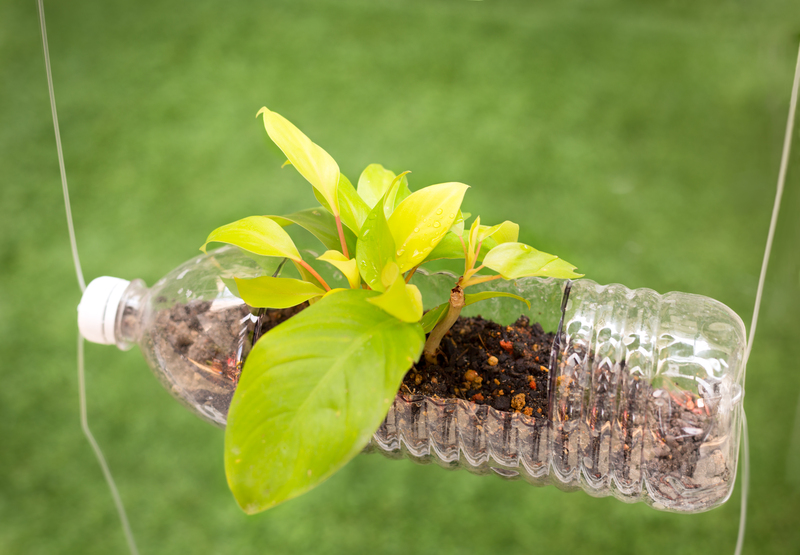Understanding the Environmental Impact of Recycling Metals
Metals play a crucial role in our modern economy, serving as essential components in everything from electronics to construction. However, the extraction and processing of these materials have significant environmental consequences. This is where recycling metals comes into play, presenting an opportunity to mitigate environmental impacts. This article delves into the environmental impact of recycling metals, offering insights into how it contributes to sustainability and the conservation of resources.
The Importance of Metal Recycling
Recycling metals is a critical aspect of sustainable development. Unlike some materials, metals can be recycled indefinitely without degrading their properties, making them perfect candidates for recycling efforts. The recycling of metals provides numerous environmental benefits, including reducing the need for mining, conserving natural resources, and lowering energy consumption.

How Metal Recycling Works
To understand the environmental benefits of recycling metals, it's essential first to comprehend the recycling process itself. Here's a breakdown of the primary steps involved:
- Collection and Sorting: Scrap metal is collected from various sources, including households, industries, and construction sites. Once gathered, these metals are sorted into categories based on their types and quality.
- Processing and Shredding: After sorting, metals are processed by shredding or compressing into smaller, manageable pieces, allowing for easier melting and purification.
- Melting and Purification: The shredded metal is melted in a furnace at high temperatures. Different metals melt at specific temperatures, so furnaces are adjusted accordingly. During this stage, impurities are also removed.
- Forming and Cooling: The clean, molten metal is poured into molds or cast into specific shapes and allowed to cool. These forms are then ready for use in manufacturing new products.
Environmental Benefits of Recycling Metals
Recycling metals supports environmental sustainability in numerous ways. Let's explore the most significant benefits offered by this eco-friendly practice.
Reduction in Energy Consumption
The process of mining, refining, and processing metals is energy-intensive, often relying on fossil fuels. Recycling, however, requires significantly less energy. For instance, recycling aluminum saves up to 95% of the energy needed to produce new aluminum from raw materials. Therefore, recycling leads to reduced greenhouse gas emissions, which contribute to climate change.
Conservation of Natural Resources
Many metals are finite resources. Mining them not only depletes the available reserves but also damages ecosystems and affects biodiversity. Through recycling efforts, we can minimize the demand for virgin materials and help conserve these crucial natural resources for future generations.
Reduced Pollution and Waste
Mining and refining processes release harmful pollutants and byproducts into the environment, causing air and water pollution. Recycling metals significantly reduces these emissions, keeping our air and water cleaner. Moreover, recycling diverts scrap metals from landfills, reducing waste and methane emissions, a potent greenhouse gas.
Economic Benefits
The economic impacts of recycling metals cannot be overlooked. Recycling creates job opportunities in collecting, processing, and reselling metals. Furthermore, recycled metals often cost less compared to newly mined ones, providing industries with a cost-effective alternative.

Challenges in Metal Recycling
While the benefits are clear, metal recycling also faces challenges. These include:
- Complexity of Sorting: Various metals exist in complex mixtures, making effective sorting crucial and sometimes challenging.
- Consumer Awareness: The success of recycling programs relies heavily on public participation, which requires significant education and motivational efforts.
- Contamination: Contaminants within the metal stream can affect the quality of recycled metals, making purification an essential but sometimes costly step.
Future of Metal Recycling
As technology advances, the efficiency of recycling methods continues to improve. Innovations such as automated sorting systems and more effective purification techniques are on the rise. The shift towards a circular economy also places stronger emphasis on designing products with recyclability in mind, ensuring that the lifecycle of metals can continue without degrading the environment.
Conclusion: A Sustainable Path Forward
Recycling metals is not just an environmental necessity but a step towards a more sustainable future. By understanding and supporting metal recycling, we contribute to a reduction in energy consumption, conservation of resources, and mitigation of pollution. As awareness grows and technologies advance, metal recycling will continue to be a vital component of our journey towards environmental sustainability.
By choosing to recycle, individuals and industries can play a pivotal role in reducing the ecological footprint associated with metal production, ensuring that valuable resources are used judiciously and responsibly.
Let's commit to understanding and supporting metal recycling, embracing its potential to make a significant impact on our environment and fostering a greener planet for generations to come.